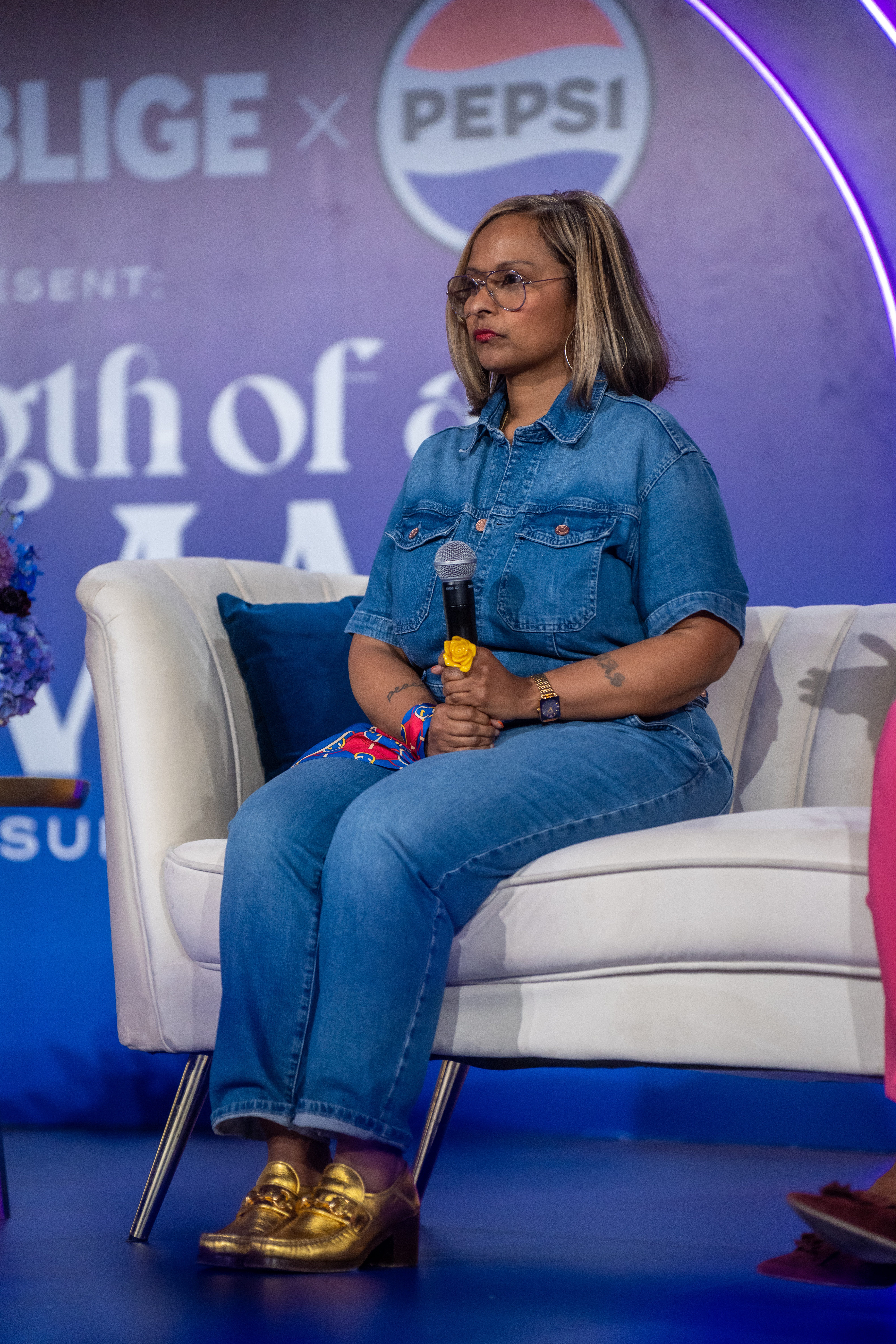The Mary J. Blige and Pepsi “Strength of a Woman Festival and Summit” descended upon the vibrant streets of New York City, transforming the iconic singer’s hometown into a hub of inspiration and empowerment over Mother’s Day Weekend. Amidst the captivating performances and engaging panels, one discussion stood out as a beacon of enlightenment: “Crisis to Care: Navigating Mental Health in the Black Community.”
Moderated by Kristi Henderson and featuring esteemed panelists Sharon Content, Shanti Das, and Dr. Thema, this session delved deep into the complexities of mental health within the Black community. As attendees absorbed the profound insights shared, seven key takeaways emerged, offering invaluable guidance for individuals seeking support and understanding in their mental health journey.

1. Busy Isn’t the Same Thing as Healed: Amidst the hustle and bustle of daily life, it’s essential to recognize that busyness doesn’t equate to healing. The panel emphasized the importance of prioritizing genuine self-care and seeking professional support when needed, rather than simply masking inner turmoil with endless tasks.
2. Addressing Microaggressions: Microaggressions are insidious manifestations of racial bias that can erode mental well-being. Panelists emphasized the significance of racial literacy — being able to identify and confront these subtle forms of discrimination — to foster a healthier, more inclusive society.
3. Destigmatizing Mental Health: Breaking down the stigma surrounding mental health is paramount. By normalizing conversations and seeking help when needed, individuals can access the support and resources necessary for healing without fear of judgment or shame.

4. Representation in Mental Health Services: Creating opportunities for mental health professionals who share lived experiences with their clients fosters a deeper sense of understanding and empathy. This representation ensures that individuals receive culturally competent care that respects their unique backgrounds and perspectives.
5. Recognizing Symptoms of Distress: It’s crucial to recognize the signs of distress, which may manifest as behaviors commonly misconstrued as laziness or a bad attitude. By reframing these behaviors as indicators of underlying stress or trauma, individuals can offer support and understanding rather than judgment.

6. It’s Okay Not to Be Okay: Acknowledging one’s vulnerability and seeking support is a sign of strength, not weakness. Embracing the reality that it’s okay not to be okay opens the door to authentic healing and growth.
7. Cultivating Authentic Relationships: True support comes from genuine connections built on trust and reciprocity. Panelists emphasized the importance of intentional friendships and relationships, where individuals can show up for each other without fear of judgment or exploitation.

As the Strength of a Woman Festival and Summit continues to empower and uplift marginalized communities, the insights gleaned from the “Crisis to Care” panel serve as a guiding light for individuals navigating the complex terrain of mental health. By fostering open dialogue, advocating for representation, and cultivating authentic connections, we can collectively dismantle barriers to mental well-being and pave the way for a more compassionate and inclusive society.

